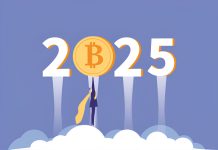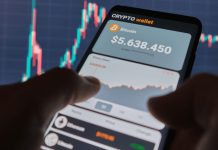Cryptocurrencies and blockchains have garnered renewed interest in 2021.
Bitcoin prices have skyrocketed, and Dogecoin has become a popular token outside the crypto community. People have continued using cryptocurrencies for trading and gambling at the best crypto casino. They also use tokens for cloud storage.
Blockchain technology has also seen a bump in interest. Many developers and tech enthusiasts are finding novel ways of leveraging smart contracts and tokenisation.
At the same time, decentralised applications (dApps) have become more prominent. Developers launch projects quite often, and user adoption has also increased.
So let us look at what these applications are and review a few interesting and innovative projects run on various blockchains.
What Is A dApp?
A decentralised application is a piece of software that uses blockchain technology. It runs similarly to standard applications on mobile devices or the web.
The difference lies in the development of the application.
A decentralised application is open-source, meaning the source code is available to the public.
Secondly, it uses blockchain technology like smart contracts and consensus methods to run operations.
Thirdly, it runs a token system. Users receive tokens for performing specific actions on the application. This provides them with an incentive to continue using the application.
Lastly, there are no middlemen when it comes to generating new tokens. This means that the consensus protocol determines how users receive tokens.
What Are dApps Used For?
Developers have been creating dApps for almost any need. However, currently, most of them are related to finance. These could be loan systems or marketplaces for trading NFTs or cryptocurrencies.
There are also decentralised video games. They use consensus protocols to generate rewards for players. This extends to casino games too. They use a consensus algorithm for randomness in gambling games.

Additionally, developers have created search engines and decentralised cloud solutions. They differ from centralised applications on the web.
Which Blockchains Use dApps?
Ethereum, released in 2015, is the most popular blockchain for decentralised applications. At the time of writing, it is home to over 2,000 dApps. These applications have helped Ethereum’s native token, Ether, rise in value over the years.
Due to its popularity and large number of applications, Ethereum is slower than other blockchains. It uses the Proof-of-Work protocol. This requires miners to use lots of computing power to verify actions on the blockchain.
Accordingly, miners receive compensation for verifying and adding more blocks to the chain. They receive “gas” in the form of Ether (ETH). Currently, gas fees are pretty high because miners take a while to add blocks.
NEO, another blockchain, attempts to speed up the transaction process. It has an average of 400 transactions per second (TPS) compared to Ethereum’s 15 TPS. NEO has 70 dApps.
Though it is faster than Ethereum, NEO has high fees. Sometimes these fees can be higher than those on Ethereum.
TRON, a newer blockchain, is faster and offers its users lower fees. It has been touted as an Ethereum killer because it is the most popular blockchain for crypto gambling sites. This blockchain can process around 300,000 transactions per day. This makes it great for resource-intensive decentralised gaming applications.
Lastly, EOS is a fast-growing blockchain. It was released in 2018, and it has over 50,000 daily users. It offers similar benefits as TRON, including fast transaction speeds and low fees.
Five dApps To Try In 2021
The following decentralised applications leverage blockchain technology. They want to provide their users with novel methods of receiving loans, collecting and trading NFTs, and making DeFi (Decentralised Finance) accessible to the masses.
1. CryptoKitties

Source: Dapper Labs
CryptoKitties is the first dApp to gain massive popularity among the crypto community. It launched in 2017 and continues to be a popular application.
Developed by Axiom Zen, this entertainment application is a game where players collect virtual cats, which they can trade and breed with other players.
CryptoKitties uses a smart contract to create unique virtual cats. They have different colours, fur, and even eyes. The application uses a genetic algorithm to generate this level of uniqueness.
Accordingly, some cats are more valuable than others. Some people have spent over $100,000 to own a unique cat. This means some players will pay money to collect a particular cat.
CryptoKitties hold value within the application but are not the same as Bitcoin or Dogecoin. They are blockchain assets. CryptoKitties owners cannot trade their unique cats for other cryptocurrencies. But people are willing to pay fiat currencies for them.
CryptoKitties are ERC-721 tokens. The Ethereum blockchain generates them as unique tokens. This means that each generated token is unique and independently verified. This differs from ERC-20 tokens, which are identical. Hence, CryptoKitties are Non-fungible tokens (NFTs).
Collecting CryptoKitties might be fun for some users, but their actual value lies in the CryptoKitty Marketplace. Here CryptoKitty owners can list cats from their collection and sell them for ETH.
CryptoKitty differs in price according to its rarity. There are 50,000 generation-0 cats. The developers first created these cats in 2017. They are the rarest and fetch a hefty price on the CryptoKitty Marketplace.
2. IPSE

Source: IPSE
The InterPlanetary Search Engine, or IPSE, is a decentralised search engine. It rivals popular search engines like Google or Bing because they own personal data and sell it to advertisers. On the other hand, decentralised search engines want to put an end to this and give benefits to advertisers.
As far as dApps go, this one is based on IPFS (InterPlanetary File System) and EOS. It gives users features not found on traditional search engines.
Firstly, it provides data ownership protection.
Users do not need to store their data with internet companies like Google. Instead, they can use decentralised storage solutions to store their data, giving them full ownership.
They can also manage their privacy preferences and dictate what data they want to share.
Secondly, it provides users with an incentive to share data.
If they want to share their standard material and preference data, they receive POST tokens for uploading and sharing it.
Thirdly, IPSE also has benefits for advertisers.
They can locate customer preference data with a smart contract and pay a fee for obtaining it. The EOS blockchain handles these transactions, so there is no intermediary between the customer and the advertiser. This is a more transparent method for advertisers to get customer data.
Lastly, EOS has a native token system. And users can receive rewards for performing actions in the application. For example, they can receive compensation for liking a social media post or sharing their content.
IPSE is the next step for search engines on Web 3.0. It does not rely on large data centres, which consume massive amounts of electricity. It uses nodes in a blockchain network. This allows scalable data storage and will enable users to own their data while making it available to others.
3. OpenSea

Source: OpenSea
NFTs have garnered much attention from the crypto community and internet users. OpenSea is a decentralised marketplace that allows users to trade NFTs from crypto games. These unique tokens range from collectable NBA highlights or artworks.
Currently, OpenSea only supports Ethereum-based collectables, but there are plans to extend the marketplace to other blockchains. Smart contracts handle the transactions, so there are no middlemen.
Users only need to connect their Ethereum wallet to the OpenSea website to begin trading NFTs. The marketplace boasts over 4 million NFTs. Users can use Ethereum tokens to bid on NFTs. These include ETH or DAI (a stablecoin).
OpenSea also allows users to create their own NFTs without knowing how to code. They only need to access the Create tab on the OpenSea website.
OpenSea takes a 2.5% commission for every transaction on the website. Additionally, due to Ethereum’s high gas fees, NFTs go through blockchain verification only when someone accepts a bid for it.
Some NFTs have higher transaction fees than others. This is because, on top of OpenSea’s cut, some artists get a commission from their NFT sales, adding to the total end amount. Videogame developers also receive a commission for video game NFTs.
Furthermore, customer service on OpenSea does not have many issues because the website is not responsible for transactions and has no power to reverse or cancel transactions. They also do not own any of the NFTs listed on the website.
In summary, OpenSea has one of the lowest commission rates for NFT marketplaces. It also has a large variety of NFTs to bid on. But OpenSea does not allow users to purchase NFTs using fiat currencies. Other marketplaces do offer this feature.
4. Uniswap

Source: Uniswap
Uniswap is a decentralised exchange (DEX). This means there is no central authority controlling the platform. Traders use their Ethereum wallets to buy or sell Ethereum-based tokens, and there is no central order book.
All transactions go through smart contracts on the blockchain. This makes trading cheaper and faster. Also, users do not need to adhere to KYC protocols.
Uniswap uses an automated market maker (AMM). This AMM uses liquidity pools and oracle price data to give traders the best available prices according to the market rates.
Moreover, Uniswap employs liquidity pools to keep a steady supply of tokens in the exchange. Every time the number of tokens in a liquidity pool increases so does its price. For example, if a user wishes to trade ETH for DOGE (Dogecoin), they need to join an ETH–DOGE liquidity pool. This way, Uniswap can always provide liquidity.
Liquidity pools operate with liquidity providers. They deposit tokens in the liquidity pool. They can redeem these tokens at any time. When they do, they receive a liquidity token. This is a record of how much they deposited in the liquidity pool.
Uniswap charges a 0.3% fee for every transaction and plugs the fees straight back into the market. Accordingly, the more transactions there are, the more liquidity providers receive from their tokens.
Uniswap is much easier to use than older decentralised exchanges. It has the largest market share of any DEXs and offers the widest variety of tokens. This is mainly due to liquidity pools and AMM.
5. Augur

Source: Augur
Augur is a decentralised betting platform. As far as dApps go, this one allows users to bet on real-world events like elections, sports, or stock market movements.
During its ICO (Initial Coin Offering), it raised 2,000 BTC (Bitcoin) and 100,000 ETH. Augur runs on the Ethereum blockchain and uses the Wisdom of the Crowd theory to predict events.
The Wisdom of the Crowd’s premise is that a large sample size can provide more accurate predictions than a few experts. This means that Augur uses crowdsourced forecasts to determine the odds of an outcome.
Augur is a prediction market platform that pays users to predict an event. Users can create prediction markets on the platform, and they receive rewards. Also, those who hold REP (Augur’s native token) receive rewards for correct predictions.
To bet on the event outcome, users need to trade shares on the particular outcome. If someone bets that the Miami Heat will win the NBA championship, they buy shares in that outcome. Each share is worth 1 ETH.
Shares change in value depending on the odds of an outcome. If the odds are even, users only need to bet 0.5 ETH. If the event does not happen, the user loses their bet amount. When they win, they receive 1 ETH.
Users can also sell their shares before the outcome happens. Odds might increase or decrease. So, users can profit in this way.
In summary, Augur is a dApp prediction platform. If it improves speed and usability, it could replace traditional futures trading platforms.
Final Thoughts
Blockchain technology has popularised the use of cryptocurrencies. And with the advent of Ethereum’s smart contract implementation, there are more use cases for blockchains.
dApps show opportunities for game developers, artists, banks, and betting platforms. They can leverage these decentralised applications to offer more transparent services.














